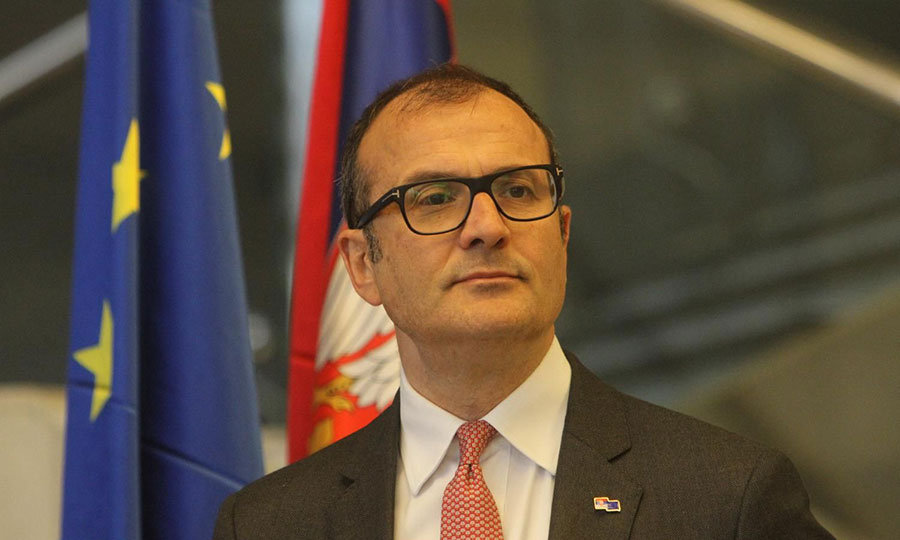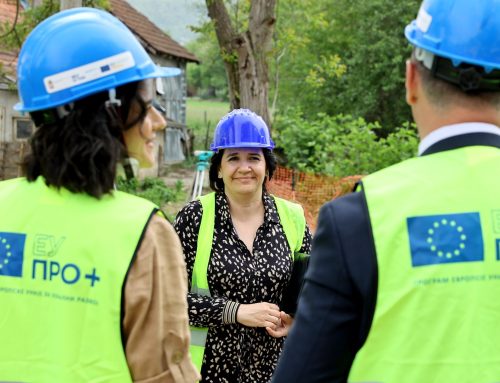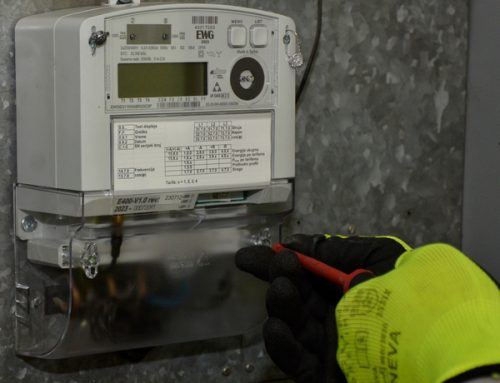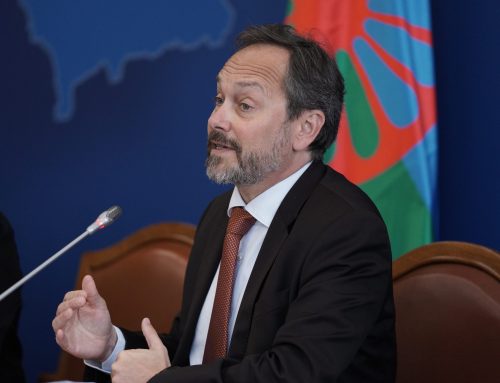In an interview with Sto plus radio station from Novi Pazar, the Head of the EU Delegation to Serbia Sem Fabrizi said that negotiations on comprehensive normalization of relations between Belgrade and Pristina have entered an important stage with a good momentum, even though it seemed that they would end in deadlock.
He said that thanks to facilitation provided by EU High Representative Federica Mogherini, both sides are willing to negotiate. However, he chose not to comment on the details of the forthcoming meeting taking place in Brussels on Sunday.
Ambassador Fabrizi said that Mogherini enjoyed full support from all EU Member States and that no Member State has put in a request to take direct participation in Belgrade-Pristina negotiations, and that no one has anyone asked that the issue be resolved in any international format, the so-called Rambouillet 2.
“The format of the Brussels Dialogue is clear and decided by parties involved in it. So far, neither Belgrade nor Pristina have launched any initiative to move the format out of Brussels or change it. I believe the format is getting too much unnecessary attention. Instead, the attention should be devoted to progress in the dialogue,” Fabrizi said.
I hope that a legally binding agreement between Belgrade and Pristina will be “swiftly agreed upon” he said, without mentioning a timeframe within which it should be reached.
“Those things are hard to define and we would rather not intervene and set any kind of date. It is clear that the agreement should be agreed upon and implemented prior to Serbia’s EU accession. The normalization of relations with Pristina is one of the main elements of the process, and the Strategy for Western Balkans clearly spells out that any bilateral disputes must be resolved prior to accession,” Fabrizi said.
He reiterated that the European perspective of the Western Balkans is unambiguous and that the EU has made this clear over the past couple of months, be it through the Strategy or the Sofia Summit.
Fabrizi noted that the announced internal reform of the Union would not affect the enlargement policy, describing them as two parallel processes.
Speaking about 2025 as the year in which Serbia and other WB countries might join the EU, Fabrizi said that it didn’t mean that they will necessarily become members by then, adding that granting of an actual membership status is determined by the pace of reform and the level of harmonization with EU standards.
“Candidate countries must earn their membership, which is why they have to implement reforms. Only then could 2025 be seen as a real and viable perspective. The focus should be put on reforms, not on a date. One should not be thinking about Serbia entering the EU in 2025, without implementing reforms in the meantime. Such a scenario is not an option,” EU Ambassador to Serbia added.
He said that Serbia, as noted in European Commission’s April Report, had made progress in the area of economic reform, but that it had to a lot more in the area of rule of law.
“The rule of law is the most important issue, the most painstaking and time-consuming one. Certain progress has indeed been made, but there is a lot of work ahead, especially in the area of judiciary independence and efficiency, freedom of media and fight against corruption. Laws are being amended, judiciary-related constitutional provisions are being changed; Serbia is on the right track and we are here to help it make the progress even faster and more thorough,” Fabrizi said.
He welcomed the fact that the Prime Minister Ana Brnabic would chair the working group for the drafting of a new media strategy.
“We expect to see a genuine dialogue between the Government, on one side, and media and press associations, on the other. Results remain to be seen, but we have already clearly stated what we expect Serbia to do in order to achieve full freedom of expression and media,” Fabrizi noted.




